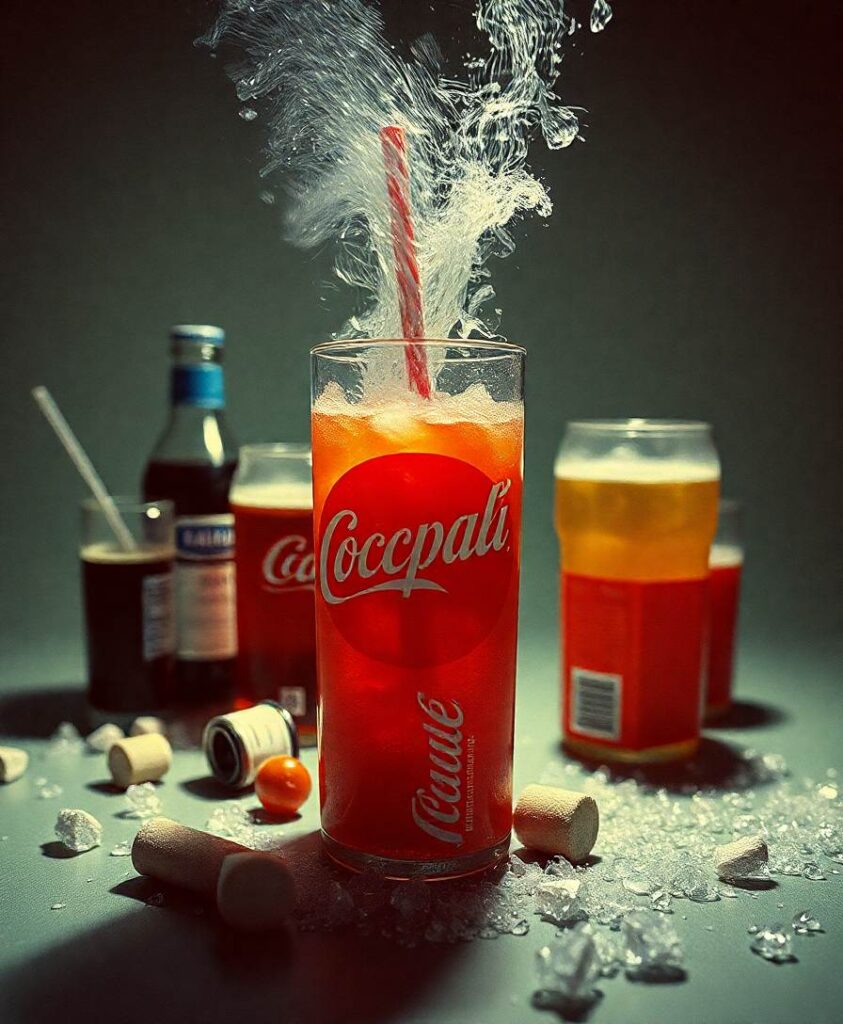Sweeteners Shape Our Wellness Landscape
Beneath every sip of soda lies a complex narrative of nutritional science, corporate strategy, and personal choice. Coca-Cola’s recent decision to reintroduce a cane sugar version of their flagship beverage reveals deeper currents in how we understand nutrition and consumer autonomy.
As an anthropologist studying cultural influences on human health, I’ve watched how technological interventions transform our relationship with food and drink. Soft drink sweeteners represent more than mere taste preferences—they reflect broader societal negotiations around wellness, industry practices, and individual agency. The ongoing dialogue between natural and processed ingredients offers fascinating insights into our collective nutritional consciousness.
This emerging conversation about soft drink sweeteners connects directly to fundamental questions of human potential. When we examine our dietary choices, we’re really exploring how small decisions can profoundly influence our metabolic health, energy levels, and long-term wellbeing. By understanding the nuanced world of sweeteners, we open pathways to more intentional, informed nutritional strategies that support our individual and collective growth.
Why the Battle Over Soft Drink Sweeteners Matters for Your Health and Freedom of Choice
The decision by Coca-Cola to introduce a cane sugar-sweetened version of their flagship soda in the U.S. isn’t just about taste , it’s a punch in the gut to the processed food industry’s sanitized, corporate-controlled version of what we think our drinks should be. This move exposes a deeper truth: the ongoing fight over soft drink sweeteners is a mirror to our larger struggle for autonomy over what fuels our bodies and minds.
For generations, big beverage companies have wielded the power to define what’s “acceptable” in our drinks. They’ve replaced natural sugar with corn syrup, cloaking their products in a guise of health-consciousness while secretly manipulating our cravings and health outcomes. Now, Coca-Cola’s comeback with cane sugar isn’t just about flavor , it’s a bold declaration that
we deserve the right to choose real, unadulterated ingredients
.
### Are artificial sweeteners and high fructose corn syrup really better for us?
The truth is, the war over soft drink sweeteners isn’t just about taste preferences. It’s about the very essence of what we put into our bodies. Corn syrup, with its sinister reputation, has been linked to metabolic disorders, weight gain, and insulin resistance. Meanwhile, cane sugar , a natural, minimally processed sweetener , offers a different story, one of authenticity and respect for nature’s design.
This shift back to cane sugar signals a wider resistance movement against the industrialization of our food. The question we must ask ourselves:
are we truly free to choose what we put into our bodies, or have we been brainwashed into accepting chemically engineered substitutes as “normal”?
The answer should be clear:
we need to reclaim our right to natural, minimally processed foods and drinks.
### The implications of choosing cane sugar over corn syrup in your soft drinks
Opting for a cane sugar-sweetened soda isn’t just about taste; it’s a stand against the corporate machinery that profits from our health crises. When Coca-Cola reintroduces a cane sugar version, it sends a powerful message to consumers frustrated with the sanitized, overly processed options that flood the market.
This move is a reminder that
we can demand honesty and transparency from the companies that shape our diets
. It’s time to question: why has the industry fought so hard to keep artificial sweeteners and high fructose corn syrup dominant? What are they hiding behind their sugar-free labels and “healthier” claims?
Choosing cane sugar over corn syrup isn’t merely a flavor preference; it’s a declaration of independence from the corporate food complex. It’s about refusing to accept cheap, synthetic substitutes that diminish our health and our ability to make genuine choices.
### The true cost of artificial versus natural sweeteners
We’re caught in a system that markets “healthier” options while hiding the true costs. Artificial sweeteners and corn syrup are often marketed as safe and convenient, but their long-term effects are anything but benign. Meanwhile, cane sugar , when minimally processed , stands as a symbol of what it means to respect our bodies’ natural needs.
The fight over soft drink sweeteners is, at its core, a fight for
truth, authenticity, and the right to choose what’s best for us
. When Coca-Cola invests in cane sugar, they’re not just making a beverage; they’re making a statement that we are tired of being manipulated and misled.
### Take back your power over what you drink
The next time you reach for a soda, ask yourself: am I choosing a product that aligns with my health and values? Or am I just succumbing to marketing hype and corporate greed? The reintroduction of cane sugar in soft drinks is more than a flavor choice — it’s a call for transparency and integrity in what we consume.
We must challenge the norms that have dictated our diets for too long. Demand real ingredients, question the science behind “low-calorie” options, and refuse to accept synthetic shortcuts as normal. Our health, our energy, our cognitive clarity depend on it.
In this ongoing battle over soft drink sweeteners, the choice is clear:
support products that honor natural ingredients, and stand firm against the corporate push for processed, artificial substitutes
.
The future of what we drink,and more importantly, what we become,depends on it.
Learn More: What to Know About Soft Drink Sweeteners
Abstract: President Donald Trump teased the announcement last week, but the Coca-Cola Co. confirmed it Tuesday: a cane sugar-sweetened version of the beverage maker’s trademark soda will be released in the U.S. this fall. For decades, Coke and the makers of other soft drinks have…
Link: Read Full Article (External Site)



